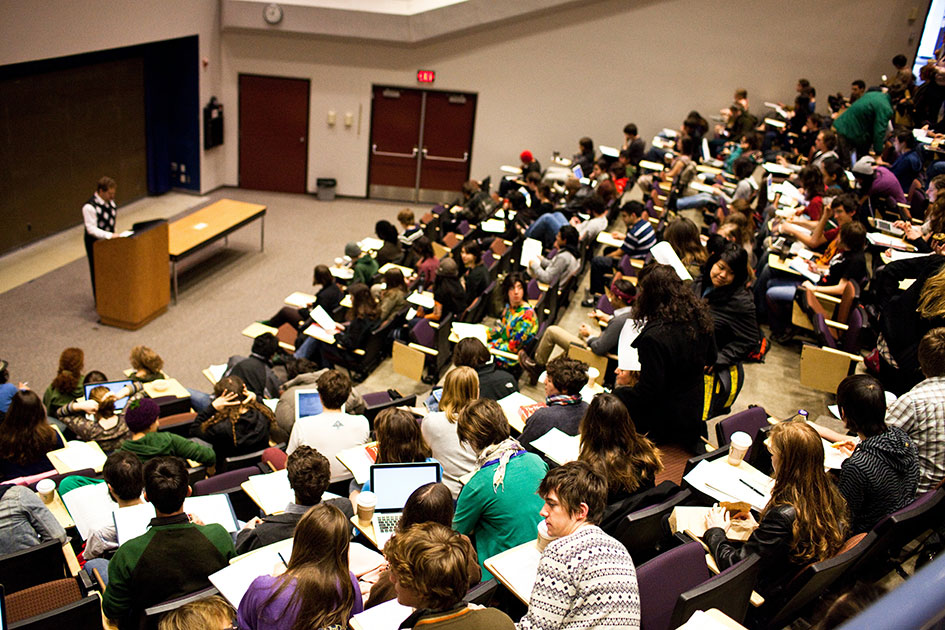Dissent and the Integrity of the Classroom
The Dean of the Faculty addresses an emotive claim—that Reed is "silencing" protests.
Dear Reed community,
Conversations are, of course, continuing on campus about dissent, activism, Reed's curriculum, the work of Reedies Against Racism (RAR), and the limits of protests. I want to address a major and emotive claim that I am hearing, that the college is silencing RAR’s protests.
As many students, particularly those in Hum 110, will tell you, the college is not silencing RAR’s protests. Hum 110 students have seen protesters seated on the stage and carrying signs in most of the lectures this semester; Hum students have received fliers and handouts from protesters; Hum students have heard from protesters in the time before the Hum lecture. Protesters have numerous other opportunities to organize and communicate to the larger campus. The notion that protests and the messages they communicate are being silenced does not stand up to the evidence.
Action was taken to prevent three protesters from verbally disrupting the actual lecture time of Hum 110. Specifically, on the first day, three protesters took the podium during the lecture time, and two began to speak to the audience. After asking the speakers to desist, and finding that they did not desist, the Hum faculty cancelled the panel presentation, and the three protesters (none of whom are freshmen or enrolled in the course) were prohibited from attending Hum lectures in future.
This decision is not equivalent to silencing the protests. Any college that cares about nurturing independent and critical thinking has to both provide space for protests and maintain the integrity of its classes; this is what the Dissent Policy attempts to achieve and what students coming to this college should and do expect. Classes are not open spaces for protest. The faculty not only has the right but, in fact, has the duty to protect the integrity of their classes and the curriculum they offer. By preventing protesters from verbally disrupting lecture space the college is enabling the faculty to control its classroom space and teach its classes, and protecting the right of students to participate in their classes. While students can — indeed, should — make their own judgments about the curriculum, it is the proper preserve of the faculty to determine and execute the curriculum.
Faculty do have significant institutional power here, but also a significant responsibility — to provide an education that they consider appropriate, challenging, and sophisticated to their students. Not to exercise that responsibility would be to fail our students.
I also want to address the suggestion that the Hum 110 faculty and/or Reed administrators are considering calling in the police to remove protesters from the lecture hall. As others have stressed, it is never our intention to call police in response to student protest, unless there is imminent risk of physical harm or severe damage to property.
Learning happens in many ways on a residential campus, and dissent and protest is a part, and sometimes an important part, of that complex whole. For us all to navigate that complexity and that learning process requires rules and demarcations. The right to protest is an important one, but it comes with responsibilities and limits, and does not include the right to disrupt class time.
Sincerely,
Nigel Nicholson
Dean of the Faculty
Tags: Academics, Campus Life, Institutional
